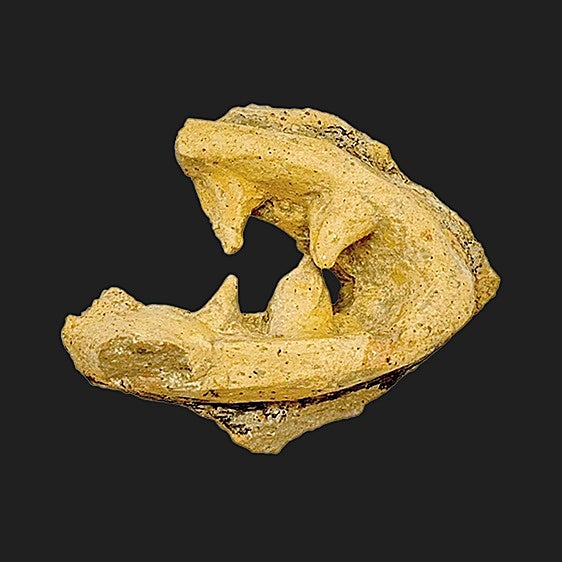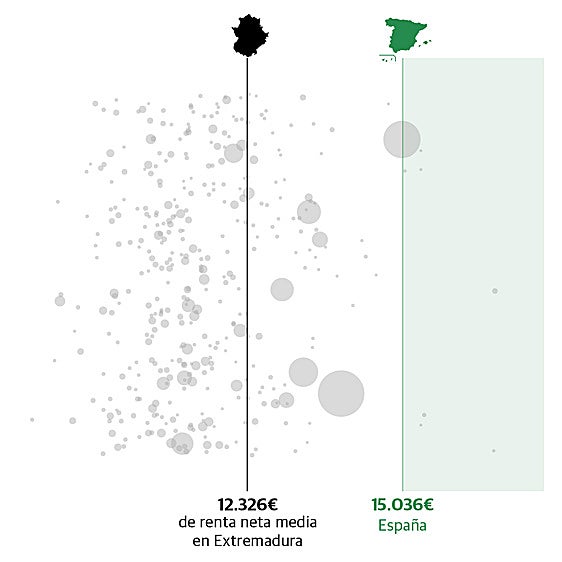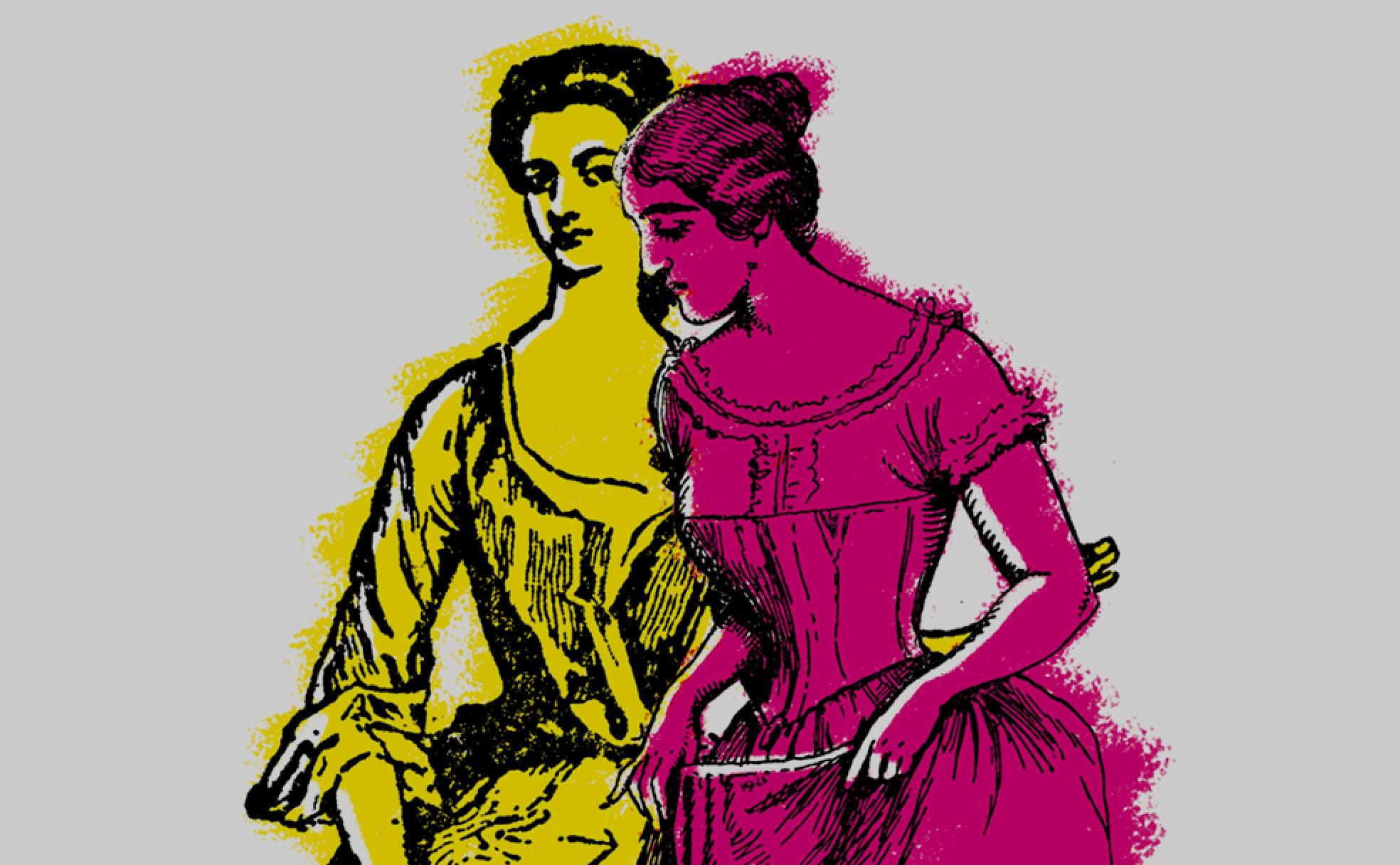Being two mothers in Spain: a path with more thorns than roses
Two mothers ·
It’s been over 15 years since the implementation of the law on assisted human reproduction techniques and the legalisation of gay marriage, but same-sex female couples still face discrimination when they want to be mothersLet’s sit down and imagine a few things. Let's imagine that being a lesbian disqualified you from being a mother in the eyes of Social Security. Let’s imagine that, if a Spanish region did allow it, you would have to be married to your partner to be eligible. Imagine that you didn’t have access to certain assisted reproduction techniques, even through private healthcare, because you weren’t married to the pregnant woman. Imagine that, in the case of a risky pregnancy in the midst of the pandemic, your partner couldn’t accompany you to the hospital because she was a woman. Imagine that she couldn’t even come to your appointments with the obstetrician for the same reason. Imagine that the midwife denied you and your partner information when you asked if you could both breastfeed, or that she told you that the request was impossible. Imagine that your partner gave birth to a child, but that because you were a woman you couldn’t declare filiation at the civil registry, even though a man can… Imagination isn’t necessary. This discrimination is happening now, in 21st-century Spain, despite it being one of the world's most progressive countries when it comes to LGBT legislation.
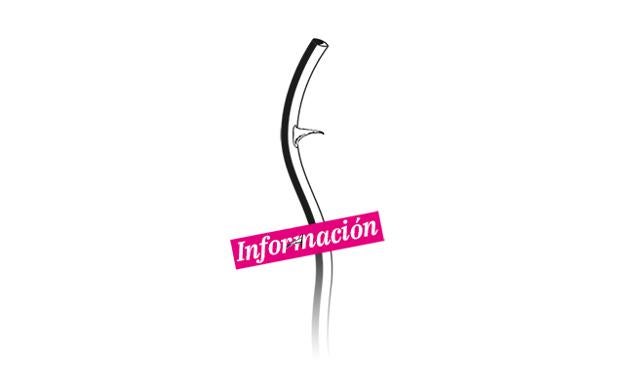
“We spent a lot of time studying, we wanted to be well-informed before going to the clinic, because nobody tells you the legal details or how everything works,” explained Mari and Paula, a couple from Tarragona who are five months pregnant. In a short time, they had to become experts in assisted human reproduction, understanding all the medical and legal technicalities. They said that this is an essential first step which all same-sex female couples have to take when they decide to become mothers.
“At the private clinic, they assumed that we already knew all the details. We knew that for the reproductive technique we wanted, we had to be married. We liked that method best because it involved both of us. And we wanted to get married in any case…,” said the couple, highlighting the main condition for accessing the ROPA (Reception of Oocytes from Partner) method: being a married couple.
"At the clinic they assumed that we already knew all the details"
Mari and Paula
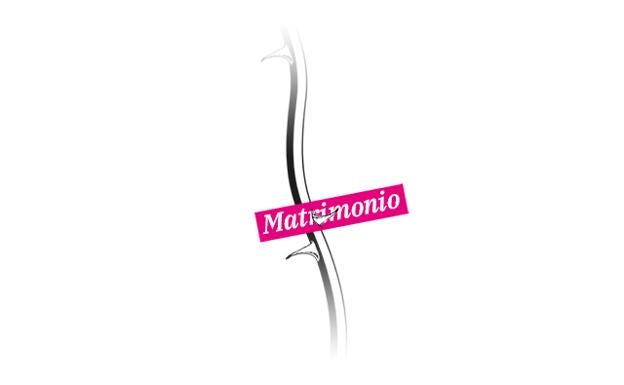
Marriage and the ROPA method: exception or discrimination?
This process is recognised as an exception to Spain’s law prohibiting surrogate pregnancies. The oocytes of one of the women are fertilised in vitro (IVF) with a donor sperm, and, once they have developed into embryos, they are transferred into the uterus of the other woman who will carry the pregnancy to term. This way, both women are involved in the process, and both are biological mothers of the baby: a gestational mother and a genetic mother.
The prohibition of surrogacy is outlined by article 10 of law 14/2006 on assisted reproduction techniques: "The contract by which gestation is agreed, with or without payment, by a woman who renounces maternal filiation in favour of the contracting party or a third party, shall be null and void." The crux of the law is the renunciation of filiation by the gestational mother. However, with the ROPA technique, the woman who undergoes the process signs a contract in the private clinic before the oocytes are transferred to her uterus, accepting filiation. Further complicating the matter, the second point of the article specifies: “The filiation of children born through surrogacy will be determined by the birth,” making it impossible in Spain for a woman who gestates and then gives birth to then give up the filiation. Therefore, requiring a same-sex female couple to be married in order to bypass the prohibition of surrogacy in Spain is unnecessary and discriminatory, as it is required to maintain the illegality of the technique in the case of unmarried couples.
So claims the Spanish Fertility Society. In a document published in June 2020, they are categorical in their conclusion: "The rights proclaimed by LGBT laws support the equal treatment of homosexual couples with respect to heterosexual couples in the field of sexuality and reproduction. This should also apply to the possibility of biologically participating in a common reproductive project.”
Equal treatment in the possibility of biologically participating in a reproductive technique, is achieved, for example, when a heterosexual couple undergoes an artificial insemination or in vitro fertilisation technique. The man "donates" his sperm to the woman, and neither the condition of the donor's anonymity nor the protected clause indicating the pregnant woman's renunciation of the filiation of her child is solved with a marriage certificate. They don't even have to be registered as a de facto couple.
Since the law was published in 2006, there has been a call for a specific law or article that protects unmarried mothers undergoing ROPA treatment, ensuring that they aren’t discriminated against. There are initiatives like that of the Spanish Fertility Society, as well as calls to action like the ‘Equal Rights for Lesbian Mothers’ petition on the change.org website, which has almost 100,000 registered signatures.
"We're very happy, but we have the feeling that we were forced to do everything at the same time: marriage and pregnancy"
Mari and Paula
The requirement of marriage not only discriminates against lesbian couples who both want to participate biologically in the reproductive process, but it is also a huge setback in the family planning process. This has been aggravated by the Covid-19 pandemic and all the bureaucratic delays caused by repeated lockdowns. “Our plan was to get married and start the process in 2020. Because of the pandemic, the wedding was delayed by a year and a bit. The first date we got was for April 2021,” explained the Tarragona couple.
But that wasn’t the only setback: “When the date finally arrived, we had to delay it again, to August, because we are from different autonomous regions and at the time there were still restrictions on movement.” One month after their honeymoon, they went straight to the clinic; although they’re young, women's fertility begins to deteriorate after 35 years. “We knew of other lesbian couples for whom the process had taken a really long time, so we wanted to start sooner rather than later. We were lucky, and got pregnant on the first try. We were really happy, but we had the feeling that we had been forced to do everything at the same time: marriage and pregnancy,” said the two women, who have created an Instagram account (@mamasmetodoropa) to share their experience of the ROPA method and to inform other women who are interested in it.
Carol and Carmen, a couple from Tenerife, had a similar experience. Their daughter, Indira, is now ten months old. “In January 2020 we went to the health centre and told them that we wanted to become mothers. They redirected us to the hospital’s Human Reproduction department,” they explained. One month later, they had their appointment.

The ROPA method is only available through private healthcare, while artificial insemination and in vitro fertilisation with a donor sperm are available through Social Security. But until only a few months ago, it was impossible to access any of these techniques through public healthcare in some regions.
Only for couples who can't conceive "after a minimum of twelve months of sexual relations with vaginal intercourse and without the use of contraceptives"
public health service conditions for the funding of assisted reproduction (ministerial order 2014)
A ministerial decree by Mariano Rajoy’s government in 2014 limited Social Security’s financing of assisted human reproductive techniques to people who were unable to get pregnant “after a minimum of twelve months of sexual relations with vaginal intercourse and without the use of contraceptives”. Lesbian couples were obviously completely excluded. However, because the range of funded health services is decided by each regional government, in some regions this discriminatory rule did not apply. In November last year, the current government reversed the exclusion, and Social Security funding has now been increased not only to lesbian and bisexual couples, but also to single women and to transsexual people able to gestate.
"They cancelled our wedding just days earlier due to the pandemic restrictions. In the end we forked out for a notary and got married without our families"
Carol and Carmen
Carol and Carmen were lucky, because when they decided to become mothers they were not excluded by the Canarian social security system. But their journey as new lesbian mothers in the midst of a pandemic had only just begun.
They had decided that Carol would be the one to undergo the assisted reproduction. She was 35 at the time, and carried out various medical tests to determine whether artificial insemination or IVF would be better in her case. “We were also told that we had to be married in order to access any of these techniques,” said the couple. An unnecessary requirement for any process which isn’t ROPA, and an illegal one, given that it violates the prohibition of discrimination based on a couple’s marital status, which is enshrined both in the Law on Assisted Human Reproduction Techniques and in the Spanish Constitution.
On 13 March 2020, without having had time to make an appointment for a civil wedding, they attended the medical tribunal to decide on the most appropriate technique for their case. But then, everything was cancelled because that very Friday the government declared the state of alarm and the lockdown. Luckily, assisted reproduction in the Canaries was not delayed too much. “They called us in May to tell us that everything was up and running again, but Carmen couldn’t come to any of the appointments with me because of the Covid-19 measures. They also reminded us that we should be married,” explained Carol. In June she began the hormonal treatment and they confirmed that the recommended technique for her was in vitro fertilisation.
The importance of a piece of paper
But this is where the problems began. Having decided upon in vitro fertilisation, Carol's eggs had to be removed in the operating theatre under general anaesthetic. She had a bad reaction, and had to spend a few days in hospital. “Because we weren’t married, they wouldn’t let me stay with her. Only her family could be in the room with her,” lamented Carmen describing this discriminatory situation. “Also, the papers which were signed at the start of the process were only signed by Carol,” she added.
Despite this complicated beginning, they managed to get pregnant. But after a few months, in August, Carol miscarried “and Carmen couldn’t accompany me to the hospital then either,” she said. Meanwhile, they had secured a date for a civil marriage, organised it in a matter of months and requested all the necessary permits for the family's travel arrangements. “They cancelled our wedding a few days before it was meant to take place because of the pandemic restrictions,” said the couple.
They were adamant that they would not go through the same ordeal as the first time and that, before starting the second embryo transfer, they would have a marriage certificate to support them. “In the end, we forked out the money to pay a notary and we got married without our families,” explained Carmen. She described how different the process was once they had the marriage certificate. “Everything changed. I could ask for leave from work without any problem, and we both even had to sign the paperwork to declare what we wanted to do with the embryos that were left over.” Things seemed to be moving in a positive direction and it wasn't long before they were pregnant.
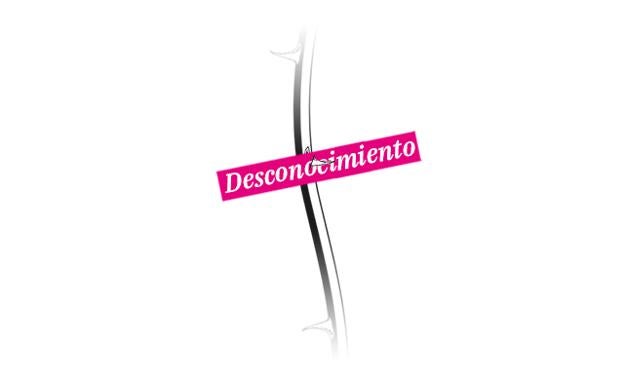
Discrimination of the unknown
We can’t just say ‘the ROPA method’, we need to explain that I’m pregnant with an egg donation from my wife,” explained Mari, now five months pregnant. Given her profession as a health worker, she was incredibly surprised that she had to explain the details of the technique to obstetricians and midwives during her pregnancy check-ups. "An important example is the nuchal translucency test, which determines whether the baby may have Down's syndrome or other genetic problems," she said. During this first term examination, as well as an ultrasound scan of the baby, the mother's blood is tested for genetic inheritance. But in a ROPA case, the fetus’ genetic information is not that of the gestating mother, but that of the mother who donated her eggs. “There is a lack of information and a general lack of knowledge of this technique among health professionals,” criticised Mari.
And this isn’t the only example of discrimination due to lack of information about a pregnancy with two women. In the case of shared breastfeeding, some midwives consider it to be practically impossible, or a figment of the imagination of those who want to do it. Through a lengthy process and hormonal medication, lactancy can be induced in the non-pregnant mother. This way, the two mothers not only share responsibility and dedication to the child, they also both get to experience the special moment of holding their baby to their chest.
When the obstetrician was asked about shared breastfeeding: "She told us that we were being capricious, because if I could breastfeed there was no point in complicating things"
Carol and Carmen
In the case of the Canarian couple, Carol and Carmen, their experience was worse when they had the consultation. "I had a high-risk pregnancy, and they referred me directly to the obstetrician instead of the midwife. She confirmed that it was the first time she had treated a female couple and it was clear to us from the very first visit that she was homophobic", Carol said. The problem wasn’t that the obstetrician who treated the Canarian couple was not unaware that shared lactancy was possible. It was much worse. “She told us that she was not obliged to treat Carmen because she wasn’t pregnant,” explained Carol, “and also, she told us that we were capricious, because if I could breastfeed there was no point in complicating things.” In the end, they had to resort to private healthcare to get information and treatment to carry out shared lactancy.
There were many complications with the birth, and Carol ended up giving birth to her daughter by Caesarean section. When this happens, the pregnant mother can’t "skin-to-skin" with her baby, and therefore cannot breastfeed immediately after birth. The newborn is taken to the father. Or to the other mother. In this case, Indira was lucky enough not to miss out on that first vital experience of breastfeeding. After everything that happened, and all their efforts and patience, these two mothers were rewarded: Carmen, the non-gestating mother, was the first to breastfeed their daughter.
Filiation: an unsettled issue
But the biggest paradigm of discrimination in the process of becoming mothers in Spain comes once the baby is born. Regardless of the reproductive technique, if the couple are not married at the time of birth, immediate filiation is only possible for the gestating mother. The non-gestating mother has to begin the adoption process of her son or daughter so that she too may be recognised as a parent.
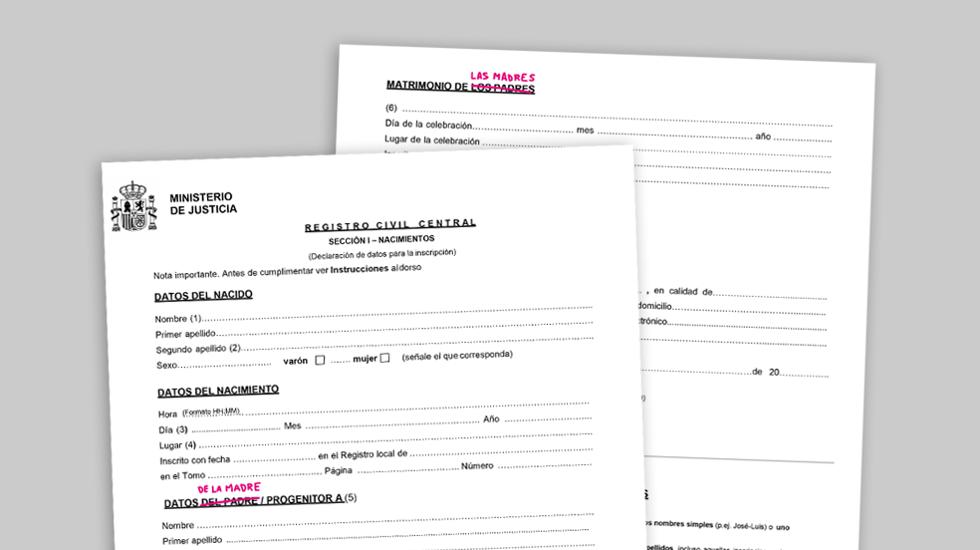
In January 2020, an agreement signed between the PSOE and Unidas Podemos noted this inequality and committed to reversing it. The draft LGBT Law, currently under negotiation, solves this discrimination in the registry. However, given that it also contains the controversial Trans Law, an agreement has still not been reached. Meanwhile, non-gestating mothers in an unmarried couple have to face the adoption process, while a man in a heterosexual relationship merely has to raise his hand. This is also one of the reasons why hospitals offering birth registration services do not include lesbian mothers among the beneficiaries. Even if they are married, they have to go themselves to the registry office, where there is room for further inequality. In some autonomous regions, the birth registration document still only includes the headings "Mother" and "Father" to record the parents’ details.
The Ministry of Justice's own website has a model application form available for download, which also has this discriminatory language.

The document of the Statistical Bulletin of Births of the National Institute of Statistics also only has “Mother” and “Father” headings. Because of this, it’s possible to compile all the data on births and deliveries collected by the INE's Vital Statistics. However, the fact that only data on the mother and father can be collected is not only discriminatory, it is also proof that children born into a two-mother family over 15 years ago are not registered as such in any public statistics.

Is this long and thorny road worth it? The couples interviewed for this report said yes, that holding their baby in their arms made everything worth it. “But I know that I don’t want to go through that again. The advantage of being two women is that, if we want another child, Carmen can be the one to carry the pregnancy to term,” said Carol without hesitation.
In a country like Spain, which already has a serious birthrate problem, it would be good to avoid making women feel adamant that they do not want to bear children because of discrimination she faced on the grounds of her sexual orientation.


